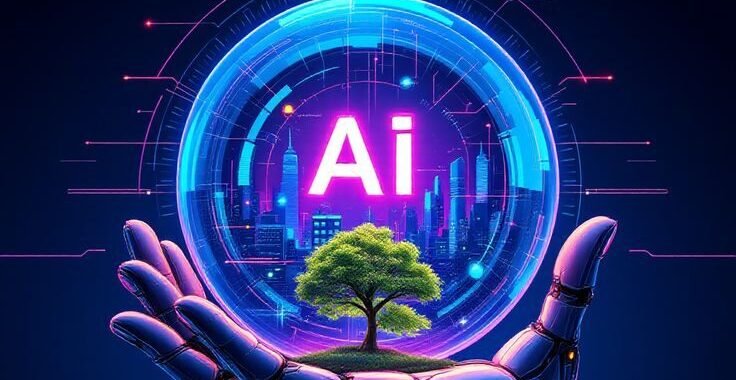In recent years, artificial intelligence (AI) has shifted from being a futuristic concept to a daily reality in the world of marketing. As we move through 2025, AI is no longer just enhancing digital marketing—it is revolutionizing it. From real-time customer insights to hyper-personalized campaigns and automated content generation, the impact is not only significant but irreversible.
This article explores how AI revolutionizing digital marketing is redefining strategies, improving efficiency, and delivering unmatched results across industries.
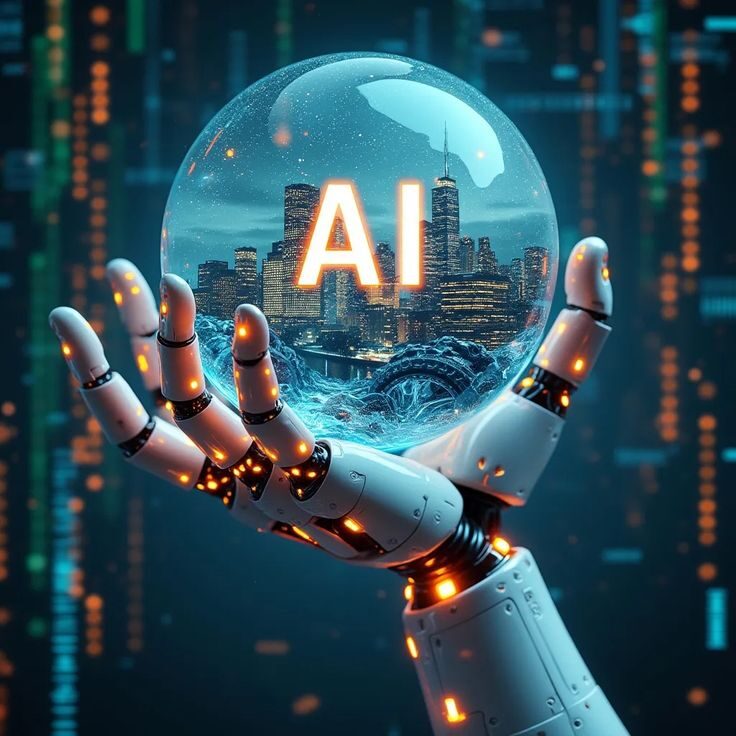
AI Revolutionizing Digital Marketing in 2025
Artificial intelligence refers to computer systems capable of performing tasks that typically require human intelligence. In digital marketing, AI uses machine learning, predictive analytics, and data processing to understand patterns, optimize decisions, and automate campaigns.
The idea isn’t to replace human marketers but to empower them with tools that elevate their strategies and enhance user experiences. As technology evolves, AI’s role in marketing is shifting from supportive to transformative.
Key Ways AI Is Revolutionizing Digital Marketing in 2025
1. Hyper-Personalization at Scale
Consumers now expect brands to understand their needs. AI allows marketers to offer highly personalized content and offers in real time. By analyzing user data such as behavior, location, search patterns, and purchase history, AI can predict what content or product a customer is most likely to engage with.
This level of personalization was once only available to top-tier enterprises. Today, with tools powered by AI, businesses of all sizes can deliver one-to-one marketing experiences at scale.
2. Predictive Analytics for Smarter Campaigns
One of the most powerful aspects of AI in 2025 is predictive analytics. By using historical data, AI can forecast trends, identify customer behavior patterns, and predict campaign outcomes. This enables marketers to make data-backed decisions instead of relying on guesswork.
For example, AI tools can help determine the best time to send emails, which ad creatives are likely to convert, and even which products a user might purchase next.
3. Chatbots and Conversational AI
AI-powered chatbots have evolved dramatically. In 2025, these tools now engage users in natural, human-like conversations, handle complex queries, and provide product recommendations. Powered by natural language processing (NLP), they offer immediate support and elevate the customer experience.
Conversational AI is also widely used in lead generation. Chatbots can qualify leads, schedule appointments, and guide users through the sales funnel—all without human intervention.
4. Content Creation and Automation
AI-generated content is no longer limited to simple text. In 2025, AI can help marketers generate blog posts, social media updates, email subject lines, and even personalized video content.
These tools don’t replace creative professionals but accelerate the content development process. Marketers can now focus more on strategy while AI handles repetitive tasks like product descriptions or A/B testing variations of ads.
5. Smarter Advertising Campaigns
Platforms like Google Ads and Meta (Facebook/Instagram) have embraced AI to optimize ad performance. From automated bidding strategies to dynamic creatives, AI ensures your ads reach the right audience at the right time with the most compelling message.
In 2025, AI tools can now test hundreds of ad combinations in real time, shifting budget toward top-performing assets without manual intervention. This results in better return on ad spend (ROAS) and more efficient campaigns.
6. AI in Email Marketing
Email remains one of the most effective digital marketing channels, and AI is taking it to the next level. In 2025, AI tools help marketers personalize subject lines, craft tailored content, and send emails at optimal times for each individual subscriber.
AI can also segment email lists dynamically, based on real-time engagement, behavior, and lifecycle stage. The result? Higher open rates, improved click-through rates, and increased conversions.
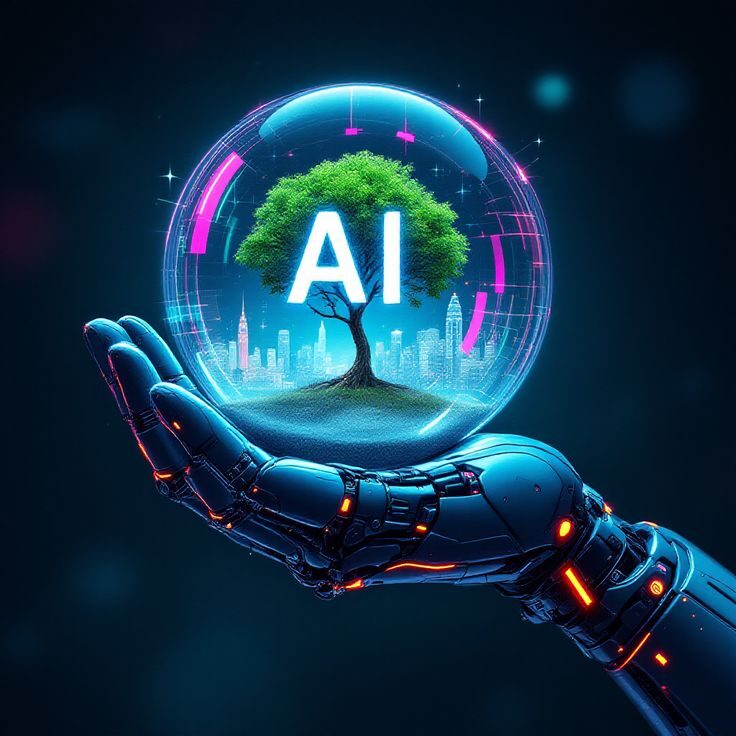
7. Enhanced Customer Insights
AI revolutionizing digital marketing also includes a deeper understanding of customers. AI tools can analyze data from multiple sources—social media, website interactions, CRM systems, and more—to build comprehensive customer profiles.
With this data, marketers can develop better personas, anticipate customer needs, and deliver relevant experiences across channels. These insights empower teams to create campaigns that feel both timely and intuitive.
8. Voice and Visual Search Optimization
As more users rely on voice assistants and visual search tools, AI enables marketers to adapt. In 2025, SEO strategies are no longer just about keywords—they also consider how people speak, search visually, and interact through devices like Alexa or Google Assistant.
AI tools help marketers optimize content for voice and image recognition, ensuring that their brand is discoverable in these growing channels.
The Business Benefits of AI
Integrating AI into marketing efforts is no longer optional—it’s a strategic imperative. Here’s why:
Increased Efficiency
AI automates time-consuming tasks such as data analysis, reporting, and campaign optimization. This frees up your marketing team to focus on creative and strategic planning.
Higher ROI
With AI’s ability to target the right audience, personalize messaging, and optimize campaigns in real time, businesses often see a significant return on investment.
Better Decision Making
AI-driven insights eliminate guesswork. Marketers can make decisions based on real-time data, reducing the risk of failure and improving performance.
Competitive Advantage
Brands that adopt AI early and effectively often outperform competitors. In 2025, AI is a critical differentiator that helps businesses stay agile and customer-focused.
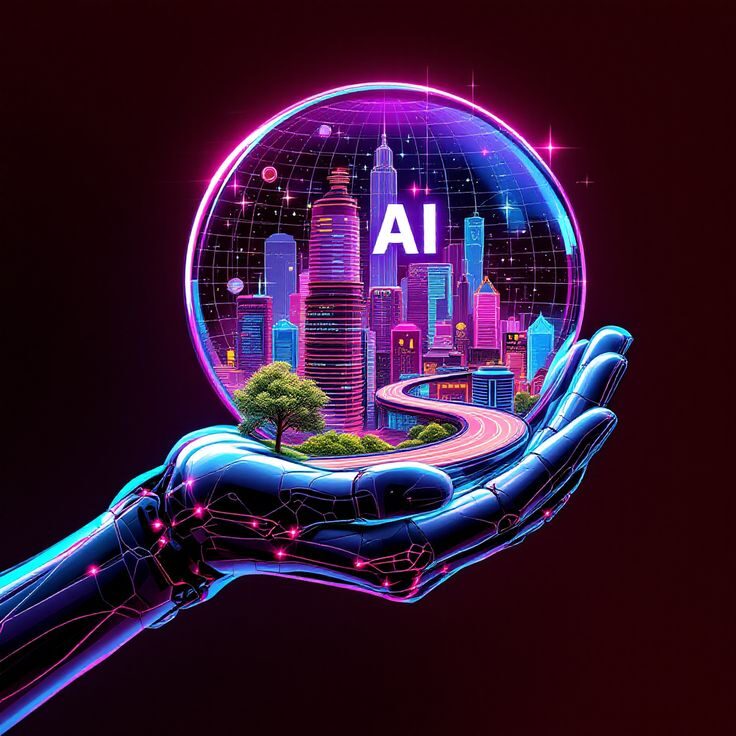
Challenges of AI
While the benefits are undeniable, integrating AI isn’t without challenges.
1. Data Privacy and Security
AI relies on vast amounts of customer data. Ensuring compliance with regulations like GDPR or CCPA is essential. Mismanagement of data can erode trust and lead to legal issues.
2. High Initial Costs
Advanced AI tools can be expensive. Small businesses may struggle with the cost of setup, training, and integration. However, scalable solutions are increasingly available for companies with limited budgets.
3. Lack of Human Touch
Over-reliance on automation can result in a loss of authenticity. AI-generated messages, if not carefully managed, may feel impersonal or generic.
4. Skill Gaps
Not all marketing teams are equipped to use AI tools effectively. Companies must invest in upskilling or hire talent with experience in AI-powered platforms.
How to Embrace AI in Your Marketing Strategy
If you want to stay competitive in 2025, now is the time to embrace the AI revolution. Here’s how to get started:
1. Audit Your Current Strategy
Identify areas where AI can add the most value—such as customer support, content creation, or advertising.
2. Choose the Right Tools
Select AI platforms that align with your goals. Some popular tools include Jasper for content, ChatGPT for conversational AI, HubSpot for CRM automation, and SEMrush for AI-powered SEO insights.
3. Start Small and Scale
Begin with one or two use cases, track performance, and expand gradually. Focus on impact and integration with your existing systems.
4. Train Your Team
Invest in training and resources to help your team understand how to work with AI tools and make the most of their capabilities.
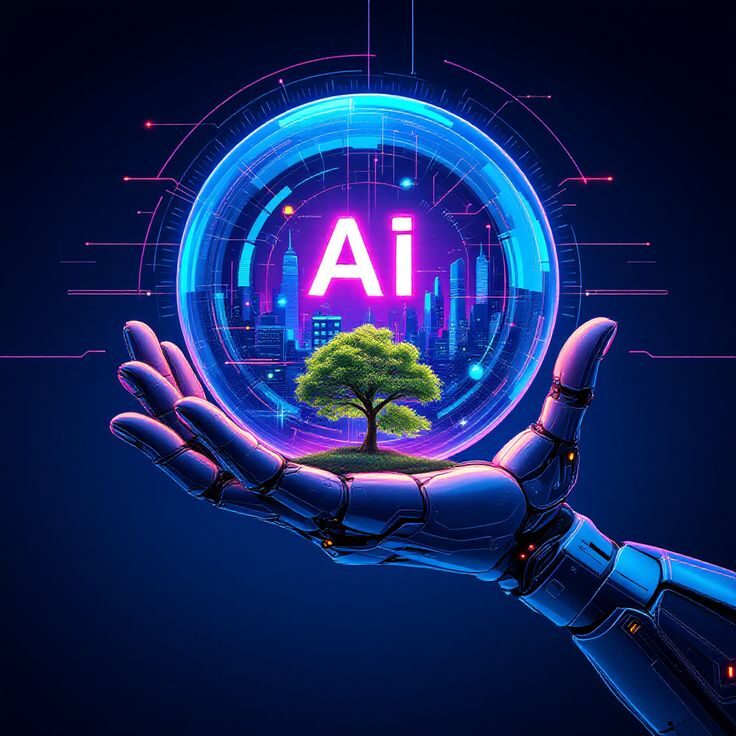
Frequently Asked Questions
How will AI change digital marketing in 2025?
AI will make online marketing more seamless, accurate, efficient, personalized, and intelligent. It will help businesses automate tasks, create content, analyze data, predict trends, and make informed decisions, ultimately leading to more effective marketing campaigns with reduced time and effort.
What AI marketing trends should marketers watch out for in 2025?
Key trends include hyper-personalization at scale, mature AI-powered content creation, non-negotiable predictive analytics, AI-optimized ad campaigns, cookieless targeting, AI-driven audience segmentation, voice and visual search, and conversational AI.
Will AI take over marketing jobs?
No, AI is primarily a tool for marketing professionals, not a replacement. While AI handles repetitive tasks, data analysis, and forecasts, human creativity, strategy, decision-making, and relationship-building remain crucial.
How can businesses start using AI in marketing?
Begin by setting online marketing goals that leverage AI. Identify functions like SEO, PPC, email outreach, content marketing, and social media management where AI can be beneficial. Then, select AI tools suitable for your marketing tactics and business needs, and implement, monitor, measure, and optimize your AI marketing strategies. (Source 1.2)
Is AI marketing expensive to invest in?
Not necessarily. While initial investments in AI marketing tools or platforms can be costly, they often lead to long-term savings. Many budget-friendly AI tools offer free or affordable plans, allowing businesses to start small and scale up. (Source 1.2)
What are the benefits of using AI in digital marketing?
AI can boost productivity and efficiency through automation, facilitate hyper-personalization, provide data-driven insights, optimize content and targeting, and enhance customer experience and ROI.
Final Thoughts
There’s no denying that AI revolutionizing digital marketing is not a passing trend—it’s a fundamental shift in how businesses connect with customers. As we move through 2025, AI is helping marketers deliver better results, faster execution, and smarter strategies than ever before.
Whether you are a small business owner or part of a large enterprise, embracing AI will not only future-proof your marketing but also elevate your brand above the noise. The brands that win in this new era will be the ones that learn to blend AI’s power with human creativity—and act before their competitors do.
If you want expert guidance, strategy, and execution that delivers real results—reach out to the professionals at Urban Dive Marketing (UDM) and you can also contact us on whatsapp or call us directly 03475159209
We hope you got a good amount of information by reading this article do not forget to give us feedback.


